Publications
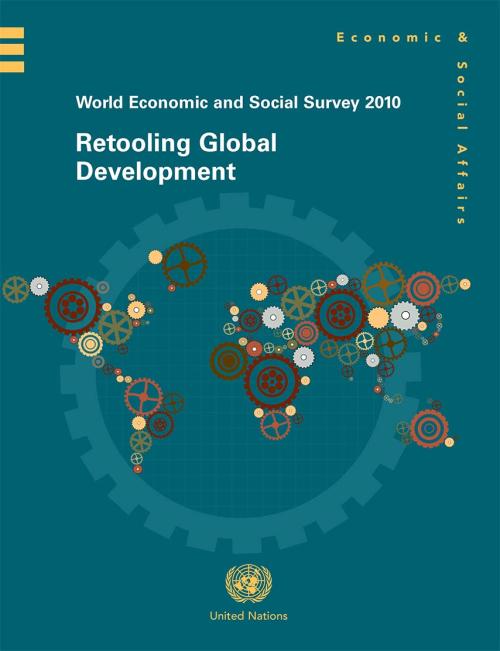
The financial fallout in the USA which rapidly turned into a global economic crisis underscored the interconnectedness of the global economy. The economic and financial crisis came on top of several other crises. Skyrocketing but highly volatile world food and energy prices evidenced a decades-long neglect of food agriculture and failure to rein in increasingly speculative energy markets. And the effects of climate change, which is already a clear and present danger whose consequences are being felt in many part of the world in the form of more frequent and severe droughts and excessive rainfall, are compounding other crises.
These multiple dramas have unfolded simultaneously and…
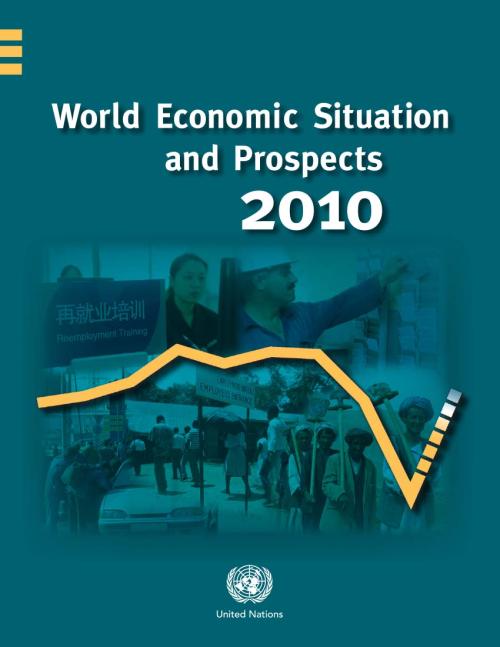
The world economy continued to improve in the first half of 2010, leading to a slight upward revision in the United Nations outlook for global growth. The pace of the recovery is too weak, however, to close the global output gap left by the crisis. The recovery is also uneven across countries. While growth prospects for some developing countries are encouraging, economic activity is lacklustre in developed economies and below potential elsewhere in the developing world.
Important weaknesses in the global economy remain. Despite the large amounts of liquidity injected into the financial system, credit growth remains feeble in major developed economies and the process of financial…
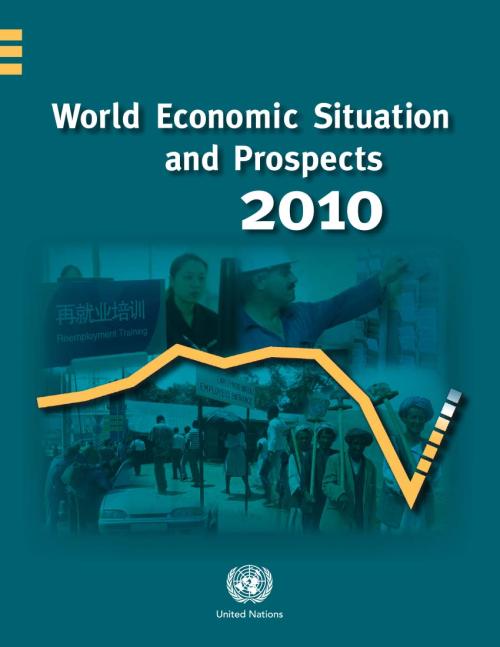
The world economy is on the mend. After a sharp, broad and synchronized global downturn in late 2008 and early 2009, an increasing number of countries have registered positive quarterly growth of gross domestic product (GDP), along with a notable recovery in international trade and global industrial production. World equity markets have also rebounded and risk premiums on borrowing have fallen.
The recovery is uneven and conditions for sustained growth remain fragile. Credit conditions are still tight in major developed economies, where many major financial institutions need to continue the process of deleveraging and cleansing their balance-sheets. The rebound in domestic demand…
The World Survey on the Role of Women in Development is the flagship publication of the DESA's Division for the Advancement of Women. It is presented to the Second Committee of the General Assembly at five-yearly intervals. The 1999 World Survey focused on globalization, gender and work and the 2004 World Survey addressed women and international migration. The General Assembly requested...
The present report recognizes that further progress has been made towards fulfilling the promises embodied in Millennium Development Goal 8 (MDG 8). At the same time, it identifies important setbacks, most of which have arisen from the current state of the world economy which is suffering its severest downturn since the Great Depression of the 1930s. Some donor countries are cutting their budgets for official development assistance (ODA); several developed and developing countries have resorted to protectionist measures; resurging debt distress is increasing the need for further and broader debt relief; the costs of essential medicines are on the rise; and the technological divide…
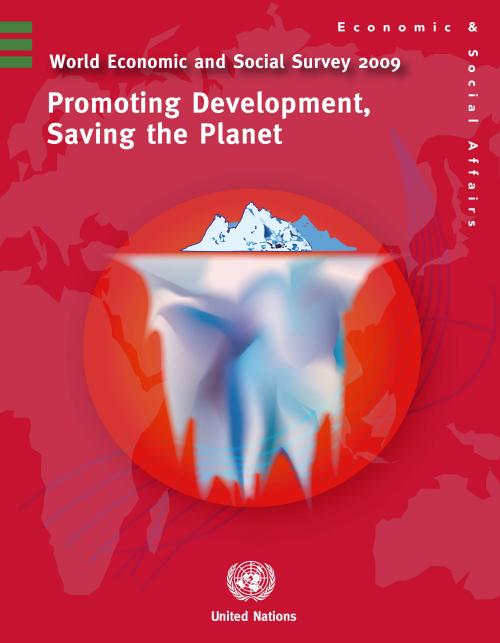
The central message of the World Economic and Social Survey 2009 is that addressing the climate challenge cannot be met through ad hoc and incremental actions. In the first place, it requires much stronger efforts by advanced countries to cut their emissions. The fact that in this regard more than a decade has been lost since the adoption of the Kyoto Protocol to the United Nations Framework Convention on Climate Change only adds urgency to those efforts. However, even if advanced countries begin to match their words with deeds, their efforts are, by themselves, unlikely to be sufficient to meet the climate challenge. The active participation of developing countries is now required and…
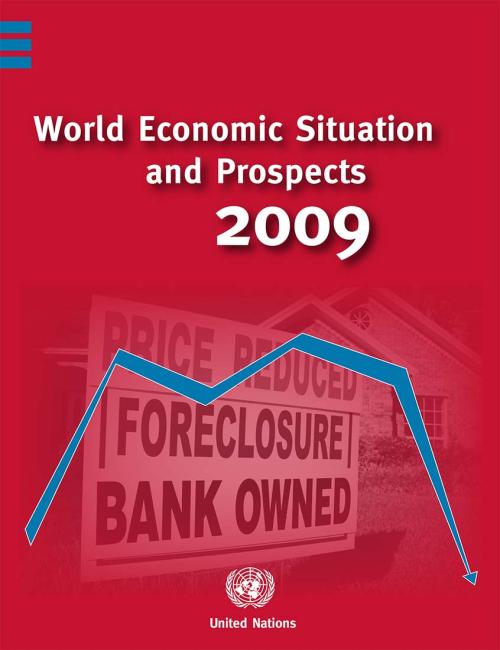
Faced with the worst recession since the Second World War, the United Nations baseline forecast for world economic growth has been revised downward compared with the pessimistic scenario of the World Economic Situation and Prospects 2009 published in January. The world economy is expected to shrink by 2.6 per cent in 2009, after an expansion of 2.1 per cent in 2008 and nearly 4 per cent per year during the period 2004-2007. While a mild recovery is expected in 2010, risks remain on the downside. Developing countries are disproportionately hard hit by the crisis.
The global policy response has been unprecedented, including monetary, financial and fiscal measures to stabilize…
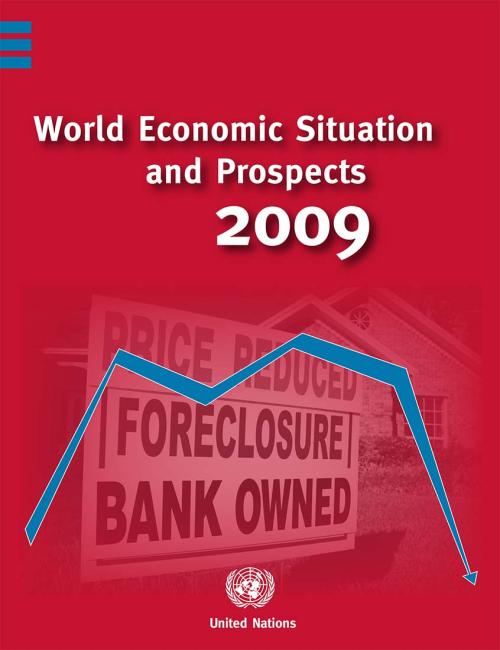
The world economy is mired in the worst financial crisis since the Great Depression. What first appeared as a sub-prime mortgage crack in the United States housing market during the summer of 2007 began widening during 2008 into deeper fissures across the global financial landscape and ended with the collapse of major banking institutions, precipitous falls on stock markets across the world and a credit freeze. These financial shockwaves have now triggered a full-fledged economic crisis, with most advanced countries already in recession and the outlook for emerging and other developing economies deteriorating rapidly, including those with a recent…
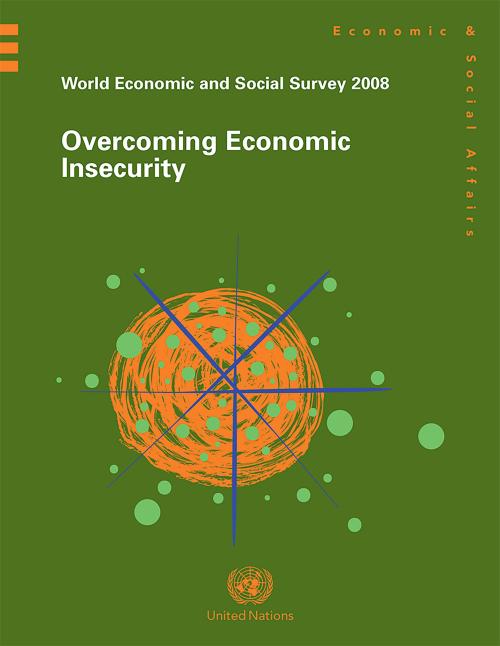
According to the 2008 World Economic and Social Survey, economic insecurity arises from the exposure of individuals, communities and countries to adverse events, and from their inability to cope with and recover from the downside losses. The risk and threats vary from community to community; in advanced countries, they have been associated with a significant rise in inequality, a hollowing out of middle-class lifestyles and reduced welfare protection. Elsewhere, economic shocks and premature deindustrialization have raised fears of an insufficiency of the formal sector jobs needed to accommodate an expanding urban population. In still other places, food insecurity has given rise to…
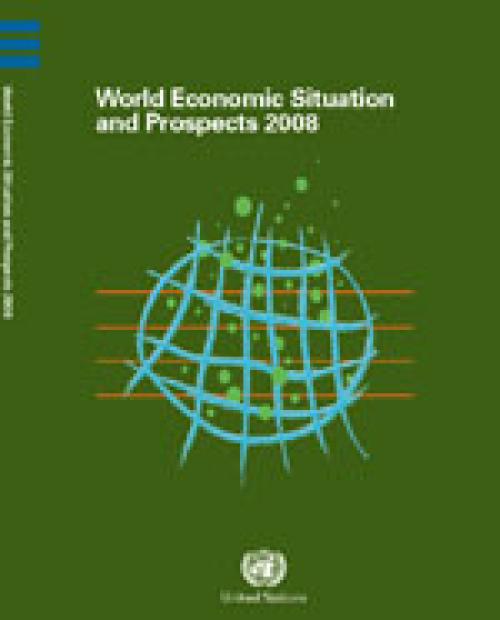
In the wake of turbulence in the economic environment, the United Nations baseline forecast for world economic growth has been revised downward in line with the pessimistic scenario of World Economic Situation and Prospects 2008 published in January. The deepening credit crisis in major developed market economies, as triggered by the continuing housing slump, the declining value of the United States dollar vis-à-vis other major currencies, persisting global imbalances, and soaring oil and non-oil commodity prices are slowing growth of the global economy.
Global growth reached 3.8 per cent in 2007 but is expected to decline markedly to 1.8 per cent in 2008, with the weakness likely…
The MDG Gap Task Force has assessed the global commitments contained in the framework of the Millennium Development Goals (MDGs) ratified by Governments as the various international events that followed the Millennium Summit. The United Nations Millennium Declaration emphasized that strengthened global partnerships for development were needed to provide the enabling environment for accelerating progress in reducing poverty, improving health and education, establishing gender equality and ensuring the protection of the environment as defined in the MDGs.
The main message of the present report is that while there has been progress on several counts, important gaps remain in…
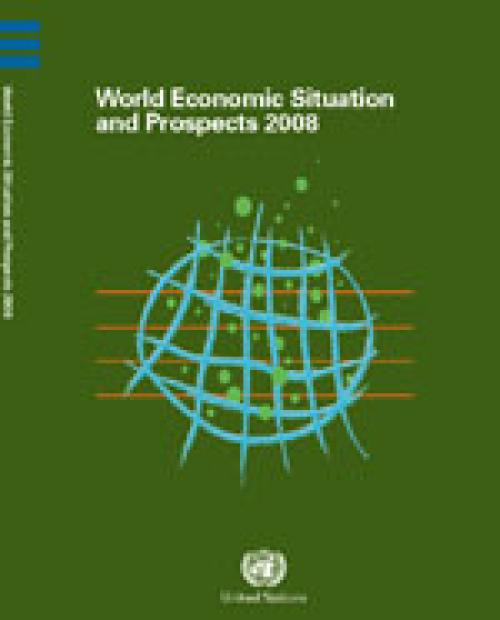
The World Economic Situation and Prospects 2008 highlights the risk of a recession in the United States and a hard landing of the global economy as a whole. The combination of a deep housing slump in the United States, continuous devaluation of the United States dollar and related increased financial turmoil could trigger an abrupt adjustment of the global imbalances, which would not only send the economy of the United States into a recession but would also lead to a hard landing for the global economy as a whole. Lessons need to be learned from the recent financial turmoil to reduce vulnerabilities to future financial stress. Responses by the central banks of the major economies have…
 Welcome to the United Nations
Welcome to the United Nations